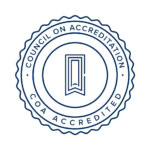massnonprofit news – How to Create Culture Change in Your Organization

Our Director of People and Culture, Guimel DeCarvalho, was featured in massnonprofit news. Read the full article below or as it originally appeared here.
The election of a President whose campaign was divisive and racially charged, while shocking to many, created a sense of urgency at Wayside Youth & Family Support Network that we hadn’t felt before.
We decided it was time to have a conversation with our staff about equity and inclusion in order to be clear about where our agency stood.
Up until the election, we held an annual staff training, had formed a committee focused on diversity, and had started to provide tools for how staff and managers should address discrimination. The results were lackluster, and we knew we needed to do more.
Would it be easy to bring folks to a baseline understanding of each other and the clients we serve? We were about to find out. With more than 450 staff in 17 locations being 64% white, 75% female, and spanning in age from millennials to 76 years old we knew there would be a lot of challenges in meeting all their needs.
First, we started by looking at where we stumbled in the past to avoid repeating mistakes. Previously when we tried to engage staff, we heard participation was low because there were logistical issues, the information wasn’t presented in an interesting or useful way, and top-level administrators (mostly white) didn’t attend. This was a major red flag.
Let me say, if your CEO is not on board, creating a major shift in thinking, behavior, and ultimately the culture, will be nearly impossible. Lucky for us, our CEO at Wayside Youth & Family Support Network, Eric Masi, is 100% all-in. He always has been a champion of anti-racist work, and he established and regularly attends our Diversity & Inclusion Committee meetings.
With Masi’s blessing, we used an evidence-based framework developed by Monisha Kapila, CEO of ProInspire, a Washington, D.C.-based nonprofit with a mission to accelerate equity and leadership. It outlines three phases of progressive strategies based on awareness. Essentially, it’s a scale of awareness from being awake, to woke, to staying woke.
Following this framework, we developed five principles to guide us toward our goal to become an anti-racist, socially just, and advocacy-oriented organization. We would accomplish it by creating trust, having courageous (read = uncomfortable) conversations about race and equity, increasing social capital, applying an equity lens to our work, and measuring data to hold ourselves accountable.
Over the course of 18 months starting in July 2017, we trained more than 400 staff through large-scale agency trainings, in-program trainings, individual trainings, and by using a train-the-trainer model. We devised the training to provide the same level of learning to everyone, including administrative staff, regardless of where they were on the scale of awareness. We removed barriers that prevented those with less access to education from obtaining employment; we measured key indicators like turnover, especially among staff of color, and the percentage of managers of color; and conducted and shared the results of a diversity survey.
We did not always get it right and sometimes it felt like we were doing it plain wrong. Some staff told us that the trainings were valuable and that they learned a lot. Other staff said the same trainings were a waste of time. Staff also told us we were talking about diversity, equity, and inclusion too much while others felt there was not nearly enough discussion.
We learned a valuable lesson: one size does not fit all, and we weren’t going to make everyone happy. So, we got comfortable with being uncomfortable.
When we started this process, 18% of staff reported feeling completely unprepared to have courageous conversations. Today that’s down to 1.4%, with 85% of staff reporting they are more prepared to engage in courageous conversations. We’ve increased our managers of color from 27% to 35%. We have decreased staff experiencing bias from 24% to 6%.
We still have a long way to go and creating culture change is something that never really “ends.” Based on our experience, here are five tips that will help you begin to create organizational change:
- Secure CEO buy-in and full support
- Consider hiring an outside consultant
- Create a comprehensive plan that conveys where you expect the process to go
- Measure progress and demonstrate accountability
- Be resilient in the face of resistance from those who think that this is all too much and frustration of those who think you’re going too slowly
Guimel DeCarvalho is director of people and culture and chief diversity officer at Wayside Youth & Family Support Network in Framingham, a nationally accredited, nonprofit human services agency that provides a wide variety of mental health counseling and family support services to children, young adults, and families in Massachusetts. Email her at guimel_decarvalho@waysideyouth.org.

